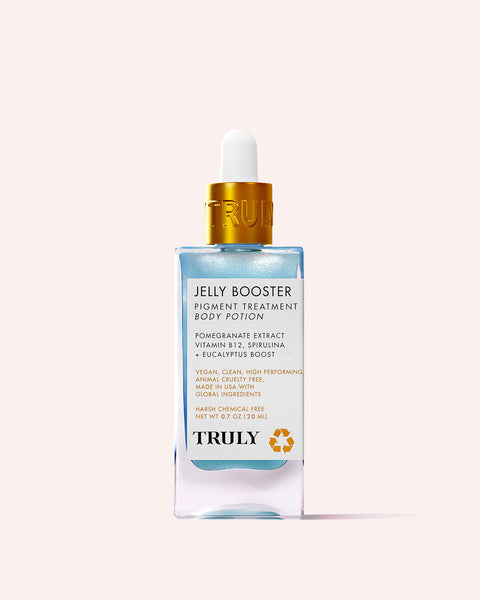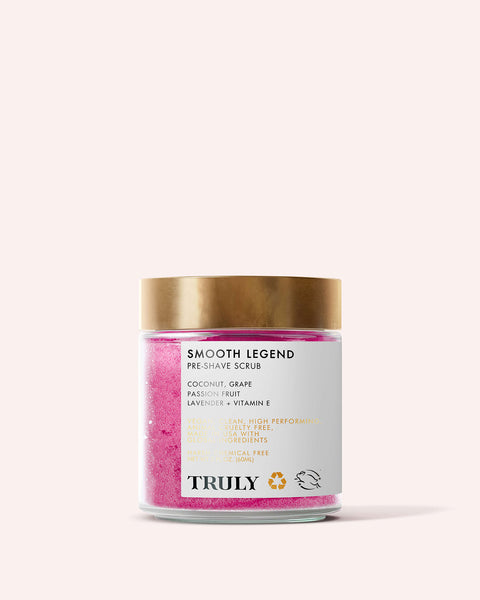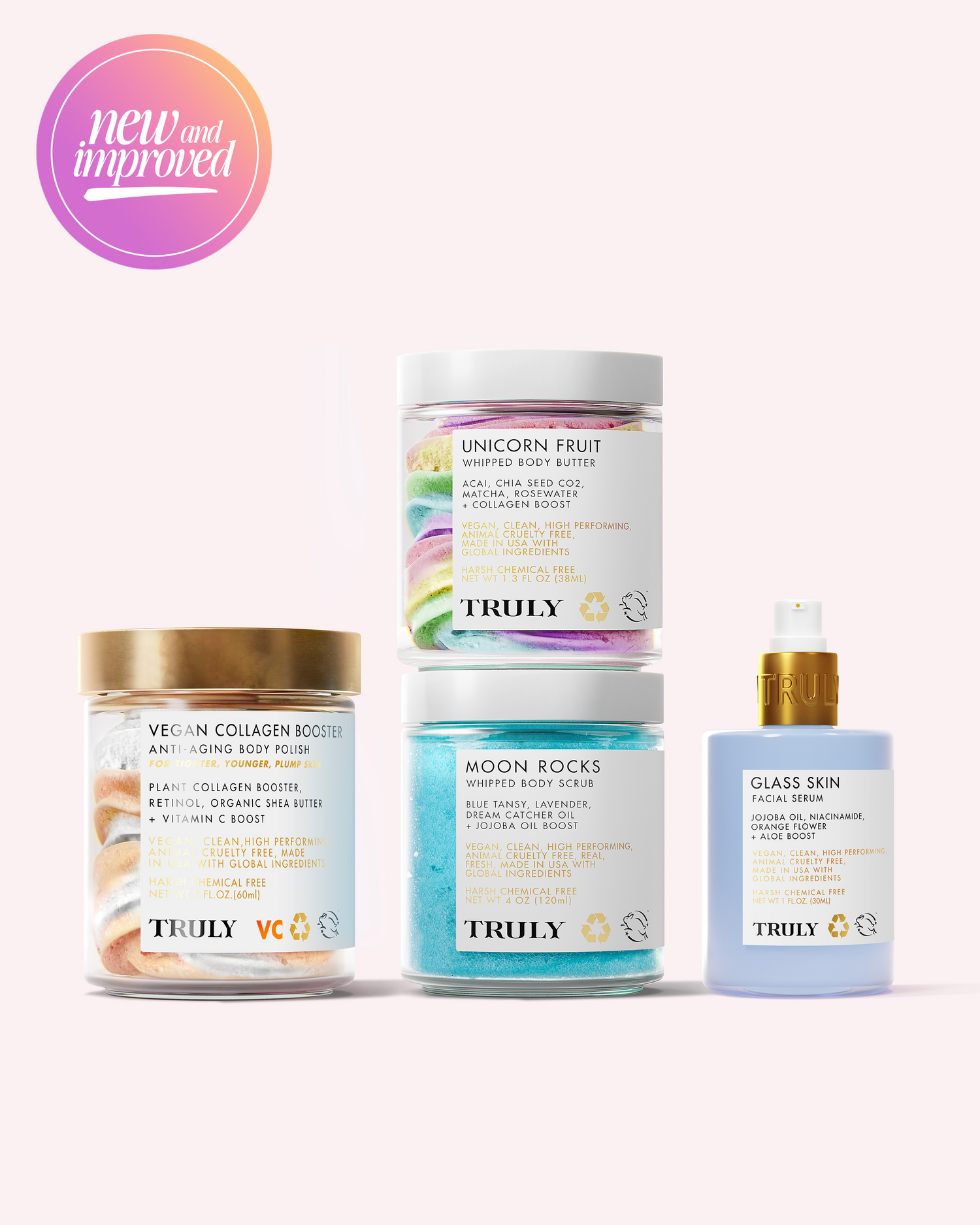How to Identify Hormonal Acne vs. The Other Stuff

If you're trying to find the root cause of your adult acne, you may be wondering whether hormones have anything to do with it. Hormonal acne doesn't just happen in your teens. In fact, hormonal acne is most common in women between the ages of 20 and 40. Yikes!
Here's how to identify hormonal acne from regular acne, and the best way to treat it.
What is Hormonal Acne?
Hormonal acne is a type of acne linked to your hormones.
"The hormones that cause this type of acne are fluctuations of estrogen and progesterone, which both vary widely throughout the menstrual cycle month," explains S. Manjula Jegasothy, M.D., board-certified dermatologist.
It is believed that these hormonal fluctuations can cause an increase in oil production in the pore, leading to clogging and ultimately, breakouts.
Cortisol -- the stress hormone -- can also affect these hormones leading to a surge in sebum, clogged pores, and increased blemishes.
Scroll down to find out how you can detect hormonal acne.
Signs You're Dealing with Hormonal Acne
These are the most common signs you're dealing with hormonal acne.
#1: You're Past Your Teen Years
Hormonal acne is most likely to occur in your 20s' since those are the years where women are most hormonally active.
That said, hormonal acne can also strike before or during pregnancy, while taking oral contraceptives, or during the menopause. Unfortunately, no woman is immune to hormonal breakouts.
#2: Your Breakouts Appear On Your Chin and Jawline
A clear sign you're dealing with hormonal acne is if your pimples are popping up around your chin and jawline. This is because the high hormonal levels stimulate the oil glands -- most of which are around your chin and jawline areas. These excess oil glands leave your chin and jawline prone to pimples.
While these are the most common places for hormonal acne, breakouts may also occur along the side of your face, down your neck, and even on your back, chest, and butt.
#3: You're Dealing with Cystic Acne
You know you've got hormonal acne when your blemishes go beyond whiteheads and blackheads.
All acne is triggered by inflammation, but hormonal acne tends to show clear signs of that inflammation, appearing as red, painful, and puffy. In some cases, you may even find yourself dealing with painful cysts.
According to Jegasothy, "These bumps are usually tender to the touch because they’ve accumulated oil over a period of days or weeks that then causes an inflammatory reaction."
Because they manifest as deeper bumps under the skin’s surface, cysts cannot be extracted manually either by yourself or a dermatologist.
#4: Pimples Pop Up Around Your Period
Do you tend to break out before or during your period? Research shows that almost two-thirds of acne-prone women report experiencing acne flare ups before or on their menstrual cycle. Experts believe it is due to the increased presence of androgens which stimulate the sebaceous glands to produce excess sebum, which clog the pores, and triggers blemishes.
#5: You're in Menopause
Many skincare changes occur during this time. This is because skin endures increased dryness, collagen loss, and enhanced sensitivity. According to the derms, menopausal acne is primarily related to changes in the microbiome.
"As our hormones diminish in menopause, the functions they perform to maintain the health and vitality of the skin diminish as well, characterized by a change in sweat, sebum, and the immune functions resulting in significant alterations in the skin surface including pH, lipid composition, and sebum secretion," says board-certified dermatologist Keira Barr, M.D., previously told us about menopause and skin.
She adds that these changes also provide alterations in the skin that may impact the skin microbiome.
How to Treat Hormonal Acne
Looking for the best hormonal acne treatment available? You have plenty of treatment options.
Use Acne-Clearing Topicals
Whether you're experiencing facial or body breakouts, it's important to start using skincare products that actively treat your blemishes.
Retinol (vitamin A) boosts cell turnover, helping to prevent dead skin cells from sticking together and clogging pores. It also exfoliates within the pores to purify, prevent breakouts, and minimize the appearance of enlarged pores. And finally, retinol can speed up the healing process, preventing acne scars.
Salicylic acid can help break down and control sebum production. Alpha hydroxy acids like glycolic and lactic are chemical exfoliators that decongest the pores, preventing the onset of acne. Benzoyl peroxide is another acne-clearing topical, but not recommended for sensitive skin types.

Try our CBD Jelly Bundle, which features a facial cleanser, exfoliating toner, face serum, and body wash formulated with acne-busting ingredients like CBD, salicylic acid, glycolic acid, and retinol.
Spot Treat with Tea Tree Oil
Tea tree oil is packed with antibacterial and anti-inflammatory properties, making it a perfect spot treatment for angry hormonal zits. Simply apply it to the affected area 2-3 times per day until the breakout disappears.

You will find tea tree oil in our Boobne Bundle, a 3-step chest acne clearing kit. It includes a boob polish, blemish treatment, and star-shaped pimple patches formulated with ingredients like tea tree oil, retinol, and charcoal to banish breakouts and accelerate healing.
Remember to follow up with an oil-free, non-comedogenic moisturizer and sunscreen.
Consider Taking Birth Control Pills
Oral contraceptives can be used for acne treatment if they contain ethinylestradiol plus one of the following:
-
drospirenone
-
norgestimate
-
norethindrone
These ingredients target the hormones that can contribute to acne and treat hormonal imbalances. They can reduce the level of male hormones (like testosterone levels) that can cause acne.
Oral contraceptives do come with side effects, so it's best to consult your doctor before taking them to ensure it's the right decision for you.
If you are experiencing severe acne, visit your dermatologist or healthcare provider for professional assistance. You may have an underlying condition such as imbalanced hormone levels or polycystic ovary syndrome (PCOS) that needs to be treated with anti-androgen pills, topical retinoids, or prescribed treatments such as Isotretinoin or spironolactone.
If you have a skin condition like eczema or rosacea, seek professional assistance for over-the-counter recommendations.








